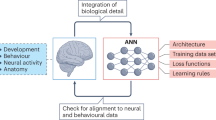Abstract
IN asking for precision of language (p. 487), Prof. Armstrong shows how much he has fallen behind his time. If he had kept abreast of the recent developments of the principles of science, he would know that to be precise means running the risk of being wrong, which is to be avoided at all costs. Prof. Armstrong evidently belongs to an antiquated school which believed that scientific discoveries are made by forming definite ideas of things, even though these cannot be seen and handled. That is a standpoint which is abandoned, and we have entered on a new era. Science now aims purely at obtaining an equation which, without committing itself to any definite views, gives the required relationship between the brain impressions taking place in that particular dimension of a many-dimensional complex, which we identify with time. I am sorry if in this statement I have committed myself to the existence of a brain—it was lapse due to a weak concession to the prejudices of my youth, and would have been impossible in a thorough-going adherer to the new faith.
Similar content being viewed by others
Article PDF
Rights and permissions
About this article
Cite this article
S., A. The Meaning of “Ionisation”. Nature 83, 6 (1910). https://doi.org/10.1038/083006b0
Issue date:
DOI: https://doi.org/10.1038/083006b0



